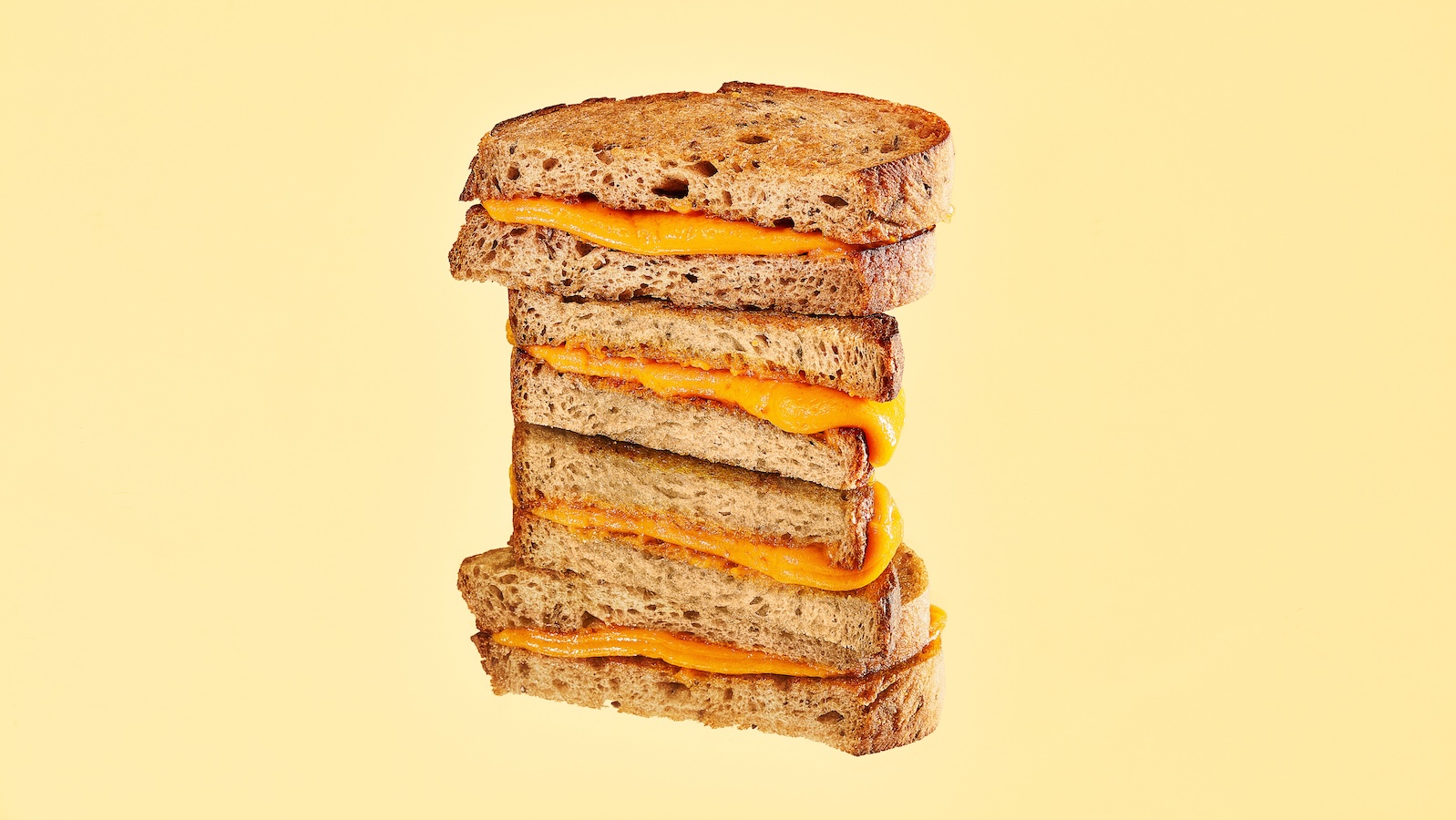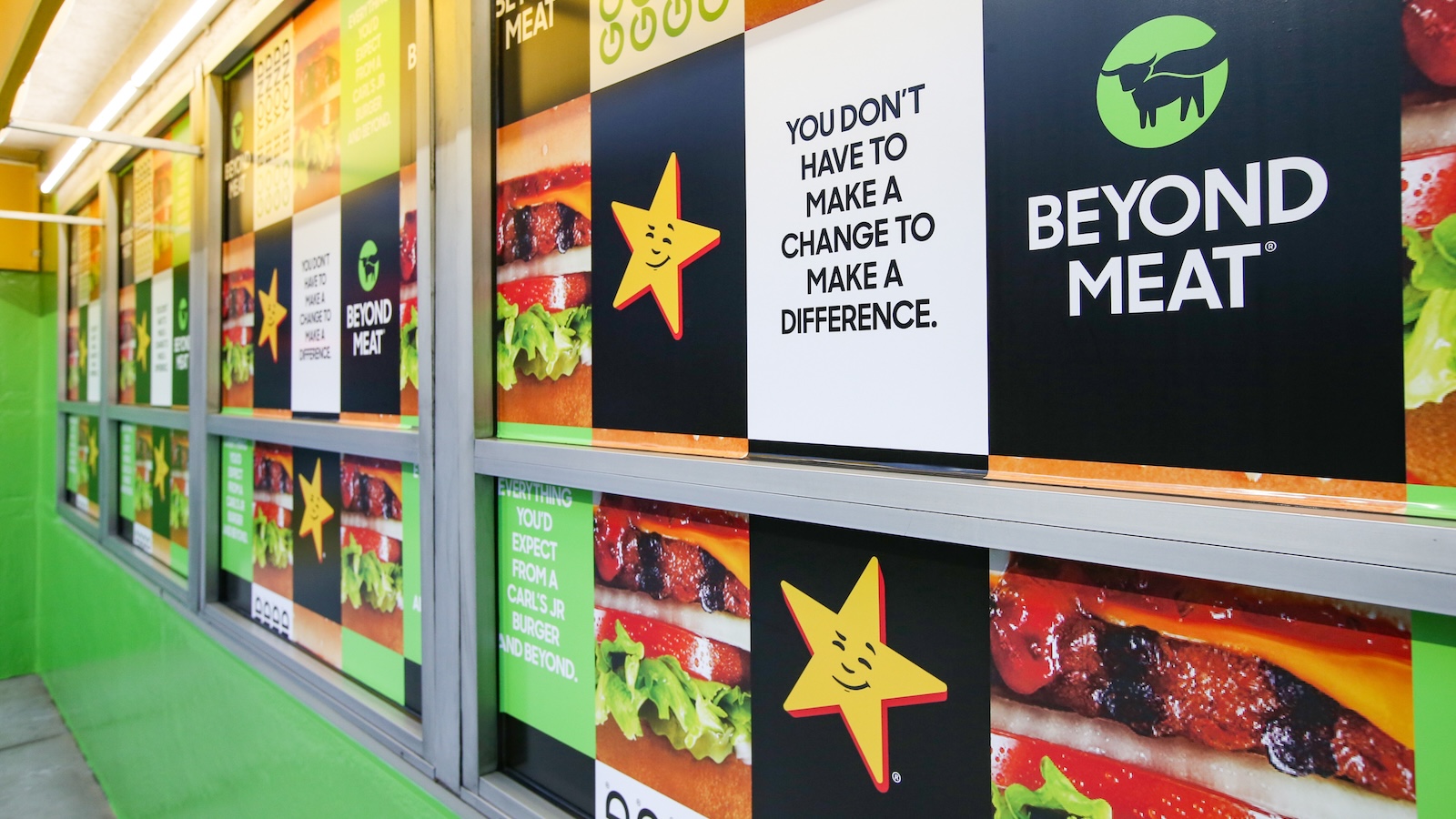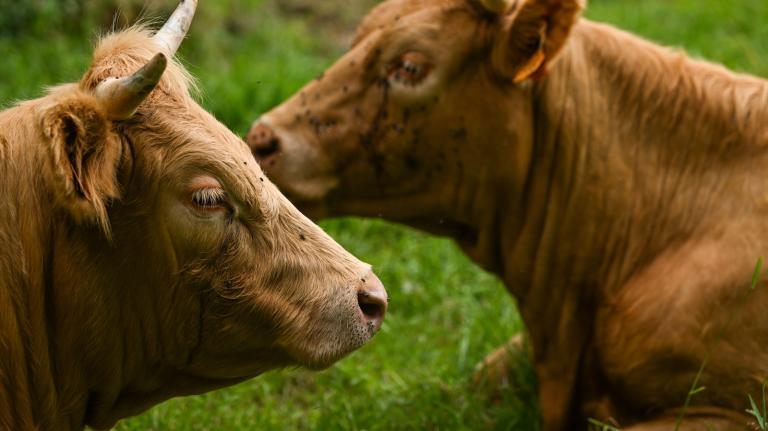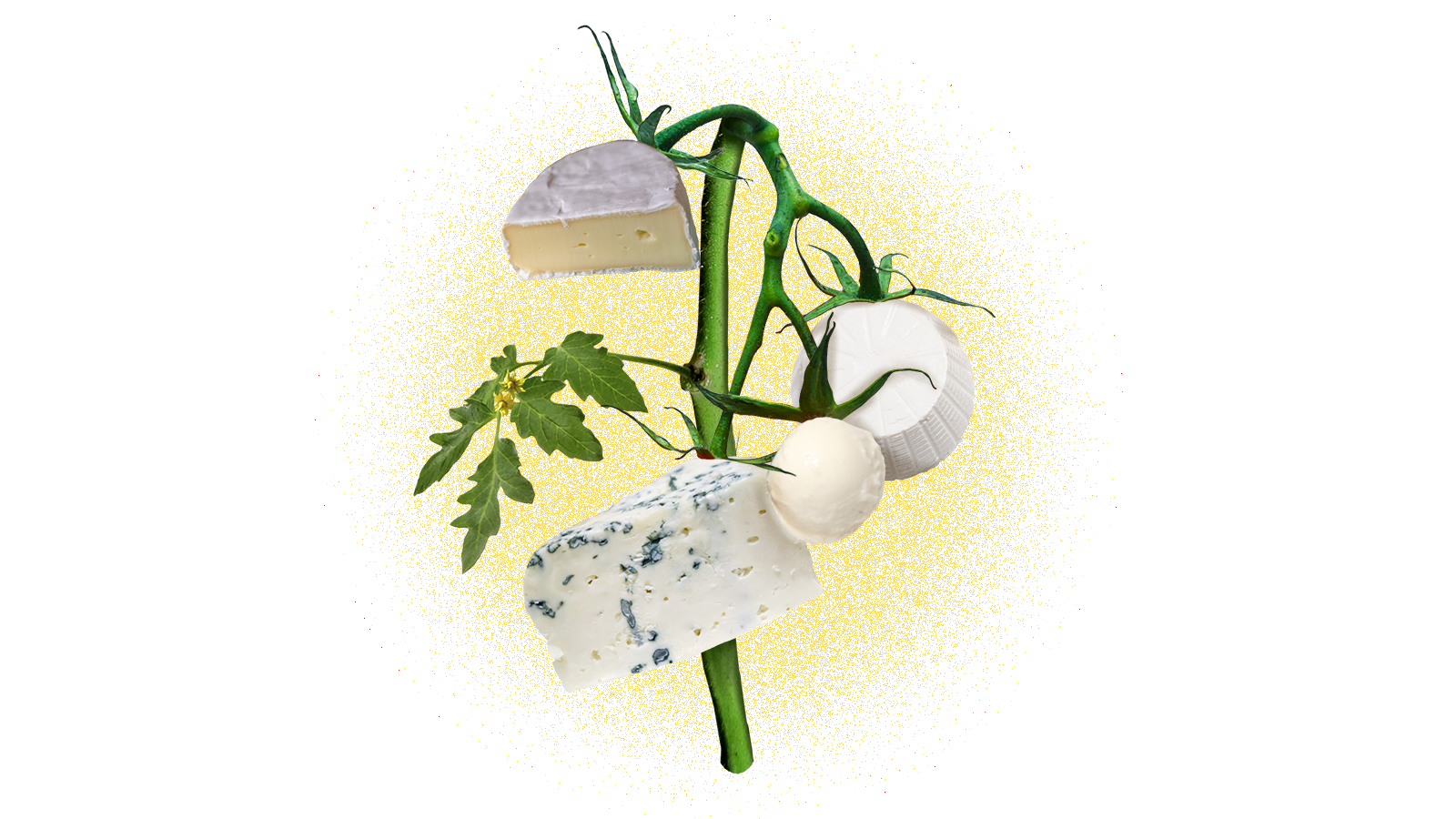A woman wearing what can only be described as rags struggles to push something large, round, and yellow up a mountain. She lets out a primal scream. A female comedian’s face appears overhead, shimmering through ominous clouds. This is not the cold open for a wacky alt-comedy web series — it’s an ad for a plant-based cheese company.
The company in question is called Plonts, and the large yellow thing is, of course, a humongous wheel of (plant-based) cheese. From here, things get weirder: The comedian whose face looms large in the sky is Kate Berlant, a performer known for her screwball and self-referential work. As Berlant quibbles with the woman on the mountain, her wry and goofy presence instantly sets the ad’s tone. With this tongue-in-cheek approach, Plonts seems to be saying that this is not a regular plant-based cheese brand — this is a cool plant-based cheese brand, one that doesn’t take itself too seriously and doesn’t want you, the consumer, to either. This ethos is aptly summarized by the ad’s tagline: Buying Plonts “won’t save the planet,” it reads. “But it probably won’t hurt.”
In the plant-based protein space, Plonts is zigging where other brands are zagging. Many plant-based brands — whether it’s oat milk or fake-beef burgers that really bleed — introduced themselves to consumers by hyping up the environmental benefits of a plant-based diet. But as they’ve learned that sustainability isn’t a deciding factor for most customers, alternative protein brands have pivoted in recent years, putting more emphasis on things like taste and nutritional benefits.

Rather than relying too heavily on any of these messages, Plonts’ new ad makes a show of playfully shrugging off its climate advantages — and calling into question whether consumerism can really get us out of the climate crisis.
If nothing else, this tactic makes the company stand out. “The category of plant-based foods, I would say, has had a pretty uniform ethics or party line,” says Jason Moran, creative director on the marketing team at Red Antler, a branding agency.
That line has traditionally been hyper-focused on the environmental benefits of eating more plants and less meat. A vegan diet results in 75 percent fewer greenhouse gas emissions than a diet high in meat. Because animal agriculture tends to require both land for grazing and cropland to grow inputs for animal feed, livestock also uses a disproportionate amount of the Earth’s agricultural land — about 80 percent.
These statistics once seemed like the key to swaying consumers to eat less meat. A decade ago, plant-based protein companies made an earnest case for the environmental benefits of fake meat. When Beyond Meat launched its “beef-free crumbles” in 2014, CEO Ethan Brown told reporters that addressing “all this doom and gloom about climate change” is “as simple as changing what’s at the center of your plate.” At times, plant-based companies doubled down on that rhetoric, practically pleading with audiences to see the writing on the wall. In a 2016 TED Talk introducing the world to Impossible Foods’ hyper-realistic veggie burgers, company founder Pat Brown (no relation) said that the global appetite for meat “is the main reason behind an ongoing wildlife holocaust.” Eliminating animal agriculture might sound like a tall order, Brown said, but it “has to be done.” The oat milk brand Oatly once took out a full-page newspaper ad on “how the pursuit of profit without consideration for the planet should be considered a crime,” according to the company’s creative director.
Now, the same companies are trying different approaches. Market research has shown that consumers are motivated by factors like taste, familiarity, price, and nutrition more than plant-based foods’ “altruistic attributes,” like sustainability. Earlier this year, Impossible Foods announced “a new brand identity inspired by the craveability of meat.” This kind of brand positioning alludes to meat’s climate impact without saying the word “climate” directly — and instead by repeating the word “meat.” (“[W]hy not solve the meat problem with MORE meat?” reads one page on the Impossible Foods website.) Oatly, meanwhile, has continued to highlight the environmental benefits of a plant-based diet, but in surprising, off-the-wall ways. The brand’s cheeky “Help Dad” campaign is aimed at convincing reluctant fathers to make the switch to oat milk, while its recent mock-exposé attacks “the dairy industry’s lack of transparency about the climate impact of its products.”

Rarely, though, has a plant-based protein brand knowingly leaned into the ambiguity around consumerism as a meaningful lever for climate action, as Plonts is doing. In the ad, Berlant suggests that the woman on the mountain needn’t huff and puff on that ragged path upwards — an act meant to symbolize eating a plant-based diet to save the planet. Instead, the woman can buy Plonts. “Fighting climate change is too hard,” the company declares on its website. “Just eat some plant-based cheese instead.”
Here, Plonts takes an honest stab at having it both ways: The company acknowledges the environmental impact of eschewing dairy without overstating the power of individual choice. “It’s really frustrating to be up against this massive problem where, you know, realistically, our individual sacrifices aren’t going to move the needle on climate change,” said Sophie Moscovici-Troyka, brand manager at Plonts, who previously worked at Impossible Foods. “At the same time, you see a lot of mission-driven companies putting the pressure on consumerism as the answer to climate change, which has all sorts of paradoxes within it. We wanted to poke fun at that tension.”
To sidestep the guilt that can come with eating meat or dairy on a warming planet, “We definitely took inspiration from different comedians and brands,” said Moscovici-Troyka. On the comedy side, that includes comic and actor Julio Torres, who has joked that the hardest part of being vegan is all of the apologizing. (“People ask me if I miss meat or dairy,” the joke goes. “I mean, I miss being liked.”) On the brand side, Moscovici-Troyka cites Oatly and the canned water company Liquid Death for their arch, irreverent approaches to marketing.
Plonts also seems to be part of a new wave of plant-based cheese companies promising to compete with dairy milk on taste. Its cheese is made by adding cultures, enzymes, and salt to plant-based milk, in a process similar to making dairy cheese; the resulting product is then aged to enhance its flavor, and additives are introduced to give it the ability to melt. Currently, the vegan cheese is only available to order at restaurants in New York and San Francisco, but the company hopes to break into retail in the future. It may be too soon to tell whether the brand’s messaging is resonating with consumers; just a few weeks out from its launch, the company declined to share sales numbers. Right now, the Plonts ad is appearing on social media and video sharing platforms.
One of the best things any brand can do when establishing itself, says Moran, is picking an audience: knowing both who you’re trying to sell to, and who you’re OK not reaching. He suggests that even if Plonts’ approach doesn’t resonate with everyone, it’s on the right track.
If Plonts is speaking “directly” to the people who are “unsure or who are not actively making food choices to save the environment,” said Moran, that may be good business. While only about 4 percent of Americans identify as vegetarian (and even fewer as vegan), a 2020 report found that more than half of Americans would be willing to eat more vegetables and less red meat. A slightly smaller percentage, 46 percent, said they’d be willing to try nondairy alternatives to products like milk and cheese. For many, making environmentally-friendly dietary choices just isn’t top of mind: Two-thirds of survey respondents said no one has ever asked them to eat more plant-based foods. Courting those eaters, said Moran, “I think is powerful.”




